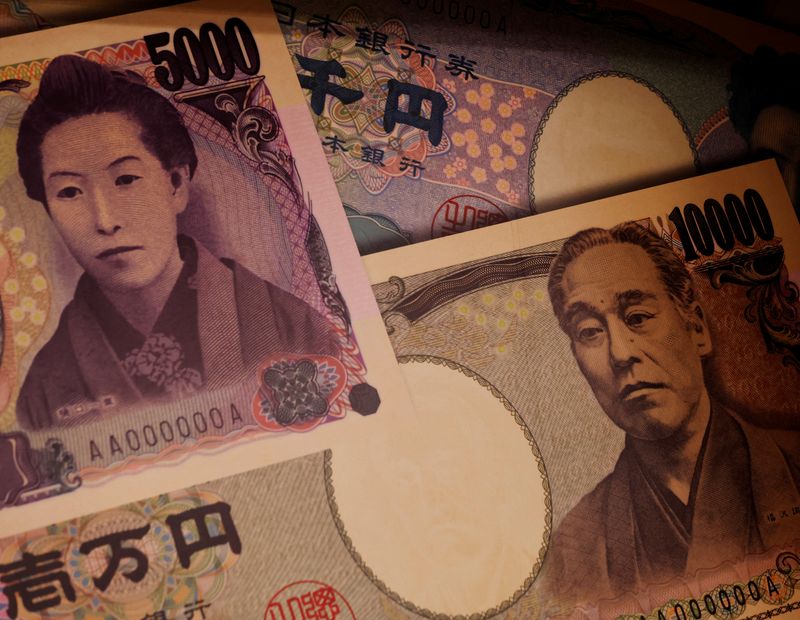Leika Kihara and Yukiko Toyoda
TOKYO (Reuters) – Japanese Prime Minister Fumio Kishida said on Friday authorities would use “all available means” to deal with the yen’s extreme fall, underscoring Tokyo’s willingness to intervene in the market to support the currency.
“It is important that exchange rates move steadily to reflect fundamental factors. Excessive volatility is not desirable,” Kishida said in a group interview, repeating remarks made earlier by Finance Minister Shunichi Suzuki.
The remarks add to a barrage of criticism from Japanese policymakers and underscore Tokyo’s deep anxiety over the yen’s recent fall, which is boosting exports but hurting households and retailers by inflating the cost of imports.
The yen strengthened to a two-week high of 150.81 against the US dollar on Friday, up from a 34-year low of 151.975 hit last week, as repeated warnings from authorities keep investors on guard against the possibility of yen buying intervention.
The yen fell to a 34-year low of 151.975 against the dollar last week despite the Bank of Japan’s historic policy change ending eight years of negative interest rates as markets interpreted its dovish outlook as a sign further rate hikes are on the way over time. .
Shortly after the yen hit a 34-year low on Wednesday last week, Suzuki said authorities were ready to take “decisive steps” against speculative moves in the yen, the strongest warning to date that currency intervention may be imminent .
He has since refrained from using such language, but continued to warn that authorities were not ruling out any options to address the excessive fall of the yen.
Markets are also awaiting any clues from Bank of Japan Governor Kazuo Ueda on how soon the central bank might next raise interest rates.
In an interview with the Asahi newspaper, Ueda said inflation was likely to accelerate “from summer to autumn” as a sharp rise in wages this year will push prices higher, signaling the likelihood of another interest rate hike later this year.
Ueda also said the Bank of Japan could “react with monetary policy” if the yen’s decline materially impacts inflation and wages, suggesting the yen’s movement was one of the factors that could trigger higher interest rates.
“Exchange rate movements are one of the important factors affecting the economy and prices,” Ueda told parliament on Friday.

“We will continue to closely monitor developments in the foreign exchange market and their impact on the economy and prices, working closely with the government,” he said.
Expectations that the interest rate gap between the United States and Japan will remain wide continue to drive yen sales.


